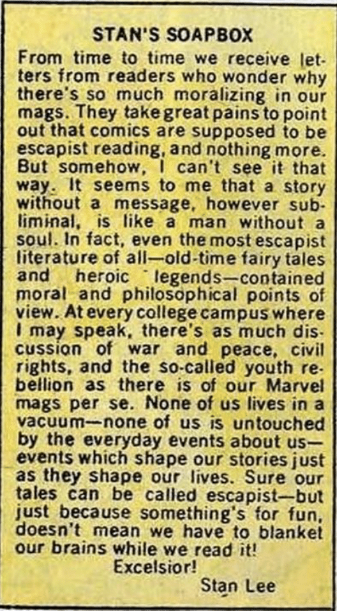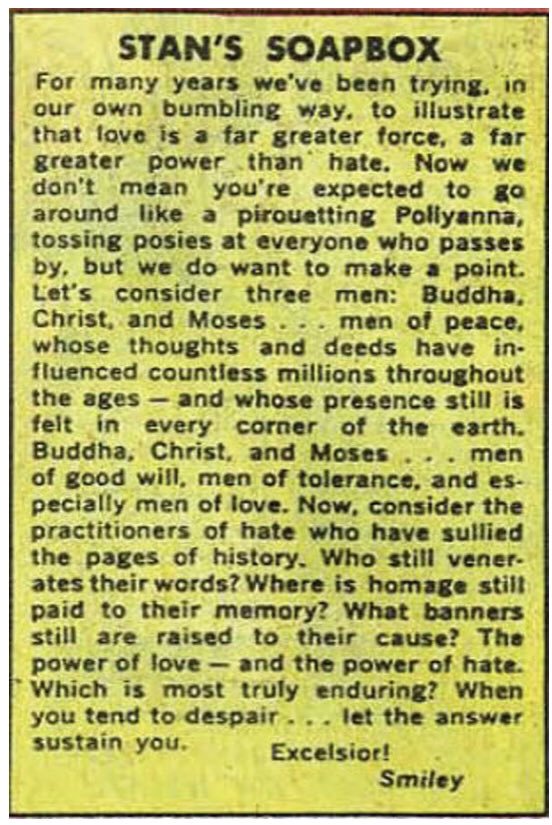What the Hell?
We have found ourselves in the fortunate position of making enemies with fascists, the Kremlin, western feds, and tankies all at the same time. What kind of genius sorcery have we channeled to deserve such a gift? Well, we simply researched disinformation wars and red-brown fascist networks surrounding the alt-right. We slept in a bad motel and presented our findings at an IEEE (a leading engineering/tech organization and scholarly journal) on Big Data. About a month later Alexander gets a blackmail-ish email from none other than leftist commentator of some renown, Max Blumenthal more or less accusing us of being spies embedded in a vast conspiratorial network. Then, as if to hand us credibility on a silver platter he co-publishes a weird and grasping article claiming the same with, of all people, notorious misogynist Mark Ames who literally gave a column in his expatriate tabloid based in Moscow, The eXile, to notorious National-Bolshevik Liminov. (Ames’s own former co-editor at The eXile called Limonov a “fascist revolutionary”). Our research struck a nerve it seems.
Some Notes on Perspective
The hardest part about disinformation is the extent to which positionality informs what various actors consider to be disinformation. One presenter in the disinformation workshop we attended suggested that people filming cops are “possibly paid protestors” as an extension of the bizarre and lowkey anti-semitic Soros conspiracy theories. When Emmi confronted him publicly from the audience about spreading disinformation in a workshop about combating it, he made a classic “oopsie” face, and shimmied around the question. Because for him, all narratives from the periphery might be disinformation. For him, information is that which has a federal stamp of approval. Surely no one would film the cops for free without the influence of some nebulous and possibly Jewish or foreign cabal. Power does not change ground truth but it does impact what is accepted and propagated. So where you stand doesn’t change reality, but it does change where you buy your maps of reality from.
So then as a result of this, various actors, competing to hold the monopoly on truth, develop and propagate “evidence” in favor of their view. Biases become implicit rather than explicit and two or more sides barrage each other with information and both sides see nothing but propaganda from their opposition. A fun fact about reality though is that it doesn’t change. Complexity and nuance can lose you points in a status contest. It can give your enemy easy dunks on you. It’s an order of magnitude easier to create bullshit than to get to the bottom of something. Power defines what is considered to be propaganda without changing the actual truth.
Blumenthal and others get this on some level. They understand the feds from both the US and the UK to be involved in an imperialist project and fighting illegal wars, overthrowing governments, and engaging in right-wing coups for decades. Alexander edited an anthology on these issues—and granted it came out four years ago and lacks a bit of a polish—but it lays out important intersections of environmentalist and workers movements given an anti-imperialist framework of political ecology writ large. While we won’t claim to know the extent of CIA information operations, we will say this. Much of what came out of the Gerasimov doctrine was a best guess at what the west was doing, and trying to couple that with the philosophical project of people like Dugin and the Izborsky club. But of course this is where it starts to gets sticky.
Anarchists have the somewhat unique position of being able to hate multiple sides that hate each other at the same time while simultaneously recognizing historical crimes and power imbalances. We can look at harm done from many directions without defending any states. We aren’t encumbered by protecting the good name of Russia or the US. Max is smart but he has allegiances and a narrative to push that conveniently aligns with the Kremlin’s talking points. And while we’ve never been invited to or attended fancy CIA galas, he has done that with the Kremlin and then abruptly begins to shift his tone on critical topics such as Syria. We won’t speculate on the degree to which he is friendly with the Kremlin, but just point out that his sources are often specious in this regard.
That being said, because we aren’t here to protect the feds, we are just as interested as he is in potential US/UK disinformation networks. If Integrity Initiative is the tip of some vast spy network we’d love to know about it. Unfortunately the sources for the majority of reports of them are RT (Kremlin controlled initial report source), Zerohedge (pro-Kremlin conspiracy peddlers), a report done by a 9/11 truther and an Assadist (discussion of the White Helmets has tell-tale Kremlin disinformation signs), a Grayzone article (Blumenthal’s baby) that casually uses the phrase ‘Knights of Templar’, this new “exposé” on Grayzone that frankly kind of sucks, and a weird sketchy blog that claims to be Anonymous (check out their theme music). It doesn’t exactly instill a great deal of confidence. But sure, Integrity Initiative (via the Institute for Statecraft) seems to at the very least get military money. A lot of think tanks and institutes do, not to mention universities. All of which are indeed worthy of critique and being exposed.
It seems to us that Russia and the U.S. are locked into what in the old days leftists used to call an “inter-imperialist rivalry,” a fight over influence, resources, and hegemony that takes place on the world stage. Journalists are at the frontline of this struggle, since much of it takes place behind closed doors. That doesn’t mean that you’re on one side or the other—quite the opposite—and that’s the whole point. Blumenthal is currently being sued by a wonderful journalist, Sulome Anderson. She says that articles like his most recent one put people in real danger by leveling false accusations (we’re not in any way connected to MI6, obviously) in the midst of international contestation. RT wants to make the CIA look bad; western disinformation firms lobbying for federal funds want to make Russia look bad. It’s not that hard of a job either way. The people who get caught in the middle are the ones attempting to undermine a kind of global hegemony of state-sponsored Truth and use reason to contravene myriad political distortions and lies.
The conclusion of our paper and presentation had an extremely light touch. We never said anything resembling “Russia is controlling the White House and the alt-right and responsible for everything bad happening everywhere,” like the conspiracy theorists that Blumenthal thinks he’s engaging with. We said something simple and objectively true: that there are elements within the Kremlin that support hybrid warfare tactics against the United States (that in many cases they learned from the CIA) and that the alt-right, far-right, hard-left, and syncretic red-brown networks are a potential pawn in this battlefield. This is such a weak claim that it shouldn’t be very contentious to anyone familiar with the terrain.
Further Fact-checking
As to the quality of our paper, we used widely accepted statistical and data-mining techniques such as Latent Semantic Indexing, Topic Modeling, and External Link Analysis and our paper was deemed of high enough quality to be accepted into a high impact scholarly technical journal. That’s more than can be said for your essay. But even so, it’s a conference paper. An initial investigation not a full-scale research project which is why we were cautious in our takeaways. Additionally we suspect some of your fear of the network graphing done about topics like the White Helmets conspiracy networks is in part because your crew is implicated and in part because maybe you don’t understand how edges, nodes, and measures of centrality/clustering work? Math can be used to lie, but you can’t really critique that if you don’t understand how the actual math is determined to be accurate.
Integrity Initiative was not the host of the event. They had one employee [edit: two] who gave a talk and have worked with Adventium Labs before (according to your semi-sketchy sources). His talk was pretty problematic as you can see. When someone asked him how we would know when we could end this “war mentality” he dodged it as if he’d never considered it. The conference, however, was by IEEE who are a cutting edge, high-impact scholarly journal in the topic of big data which the conference was on. There was a huge range of people at the conference from terrible to amazing. There was even an excellent presentation on civilian journalism against despotic regimes and police violence. Most of the attendees were *gasp* academics from *gasps deeper* information and data schools. This is the nature of most academic conferences.
Attending a prestigious conference is not the same as supporting, being funded by, or otherwise collaborating with skeezy feds. Oxford University was recently asked by the U.S. Senate to produce a report on social media meddling by the Internet Research Agency. Does that make Oxford and everyone who attends an MI6 agent? Of course not. And here’s the most dissatisfying part. Ready? No we did not get paid to present at the event and neither of us are under the employ of any of the sponsoring or participating organizations. In fact we paid for registration at the conference like anyone else, because we hoped to learn more about how people are automating and forwarding systems of disinformation detection. We’re grad students who presented at a conference, not part of some elaborate spy network but you’re welcome to make yourself look like a crackpot if you wish.
A favorite block-quote of the article typifies this willingness to grasp for straws to make a point:
That ability to shamelessly smear and denounce leftists over the most crudely manufactured links to the far-right — while cozying up to groups as sleazy as C4SS and authoritarian as the Integrity Initiative — is the sort of adaptive trait that MI6 spies and the Rendon Group would find useful in a covert domestic influence operation.
So, because we presented at an academic conference where some people in attendance support the feds (like literally every academic conference we’ve gone to, such as the American Political Science Association and American Association of Geographers) that automatically makes us MI6 field operatives? Sweet. Maybe Emmi’s gonna get to see the UK someday.
Speaking of “ability to shamelessly smear and denounce leftists over the most crudely manufactured links to the far-right,” Kevin Carson publicly cut ties with Keith Preston a decade ago as his racist and queerphobic views became apparent which you even cited and yet couldn’t let go of the catchline of “White nationalist associates.” Wow, congratulations. Someone was revealed as a fascist entryist and Kevin denounced him. Much sleuth. Many investigative journalism.
But incidentally, C4SS is a model of how to block fascist entryism at all points. The Right Stuff has hated C4SS since the beginning and targeted us on multiple occasions because of our steadfast opposition to the alt-right since before they were well known. Closed border right-libertarians with racist views have hated us since our inception because we resist them at every turn. You can see this in the longstanding hatred we garner from the Ludwig Von Mises Institute and Lew Rockwell over the years. If you can find a secret fascist under the employ of C4SS let us know and we’ll be happy to burn that bridge too. As far as courting the right or promoting right-libertarianism goes, the group has facilitated a lot of dialogues between a wide range of anti-authoritarians including even at times people who identify as libertarians or lefties. C4SS even tables at SFL to pull people left and downward on the political spectrum. Who cares? We table at lots of different things. This just shows that although we prioritize countering fascist entryism we’re not actually stomping out all discourse or political dialogue more generally. We walk the walk of encouraging dialogue while no platforming actual fascists.
We are invested in nerdily following questions to their roots which means we don’t choose a team over a truth. This is a novel concept to people like Blumenthal who would think being a leftist means propping up every shitty dude-bro like Ames whose convenient, or unflinching allegiance to people like Corbyn and John “contributed white nationalist talking points solicited by Richard Spencer to Taki’s Mag” Dolan. Gross allegiance to an ingroup is a neurological malfunctioning functioning similar to racism, but we still fight against actual fascists. If you want the left to be better you don’t cozy up to rapists, you give them no quarter as C4SS does. The fact that you deflectingly imply that Kevin’s distrust of Ames is anti-Semitic rather than, anti-pieceofshit, is a laughable example of the heroic leaps you’re willing to make.
We don’t get any Koch or Soros money. We probably never will. We wouldn’t take MI6 money even if it did come. Ames worked for Pando, a startup partly funded by neo-reactionary Peter Thiel. The world goes round. C4SS gets its funding entirely from small personal donations, built up over a decade of providing anarchist and anti-authoritarian analysis and commentary in the long tradition of individualist anarchists like Voltairine de Cleyre and Benjamin Tucker.
With regard to Brad Spangler, C4SS practices what they preach. They expose and kick out shitty people, unlike countless socialist or libertarian organizations. In the early days Spangler contributed notably to the formation of C4SS and occupied the informal position of “director” for a few years. He later began to post sketchy anti-feminist shit on his personal social media at which point C4SS stopped working with him (although he’d already began creating distance at that point). Much later, after many had lost contact with and blocked him, he announced his having sexually assaulted a child at which point C4SS immediately publicly denounced him without hiding the fact that he had written articles for them and helped run things (you see how we’re accepting responsibility not dodging it?). One scumbag helped with early C4SS which they later denounced. That is not exactly a smoking gun and is much better than could be said for Alternet, for years led by notorious Don Hazen, or it seems, Grayzone. But of course, you don’t actually care about the fact that we push out shitty dudes. You even mention that later. You just want a catchy and misleading headline.
But of course, kicking out shitty people from the left is actually the opposite of what you want, so of course you’d minimize that because how many of your buddies would be implicated? You can’t even cut ties with Ames who bragged about raping a 15 year old in a sharply misogynistic book self-described as “non-fiction” but who has recently attempted to claim it was ironic.
You’re right that we connected Zerohedge to right-wing militia groups in the borderlands…. Because there was a relevant connection. Tim “Nailer” Foley, founder of Arizona Border Recon, a group currently doing anti-refugee civilian military operations in the borderlands constantly shares things from Zerohedge, many of which are conspiracy theories fueling the ideology behind his operations. Any wingnut can share an article from anyone, the issue here is that their articles are specifically about anti-immigrant conspiracies that feed his violence. So congratulations on almost getting a fact straight. We’re not sure why such a pure and untainted leftist as yourself would feel the need to defend a crackpot website…unless …. They’re in your broader pro-Kremlin “alternative news” circles.
But please continue to take weird potshots at us because it makes us look moderate and reasonable by comparison. It seems that when you shine a light on conspiracy theorists they make up conspiracy theories about you. Go figure.
Why Does He Care?
So we struck a nerve. What was it exactly that earned us this ire? Was it that we presented at a conference with some sort of connection to this weird disinformation research firm? It seems this isn’t a strong enough reason to target us specifically. Why not just target the person who actually works for that organization with that same degree of malice you show us? What seems more likely is that it was how, in our research of the alt-right, we began seeing potential connections to larger red-brown projects using conspiracy theories to forward their state-aligned agendas. Why does this strike such a nerve for you? If you are so confident that your work is well sourced and not rooted in state-line conspiracy theories and information war why are you panicking so hard and targeting a couple of young academics at a tiny workshop producing a nerdy little conference working paper?
We’re happy to help expose western spy networks supporting fascists abroad. We support Blumenthal and others to do honest work on this topic and generally agree with him on a range of issues such as being pro-BDS or anti-Christian fundamentalism. But in the process of exposing fascist networks, we’re not going to protect vulgar “anti-imperialists” who use that as a shield against any claims of authoritarian brutality. We’re against all fascism which means we don’t stop looking for it at the highest level. We follow it down to the roots and in all its strange incantations.
Max, we’d invite you to join on this nerdy quest but it seems your interest in uncovering brutality, fascism, and imperialism has limits when it begins to touch your networks and pet projects. Because you care more about protecting your crew than finding truth, your claims of combating misinformation will always have these tell-tale stamps of propaganda that you’ve shown here. So I guess thanks for letting your true unhinged colors fly. It makes it easier to spot a crank.
















